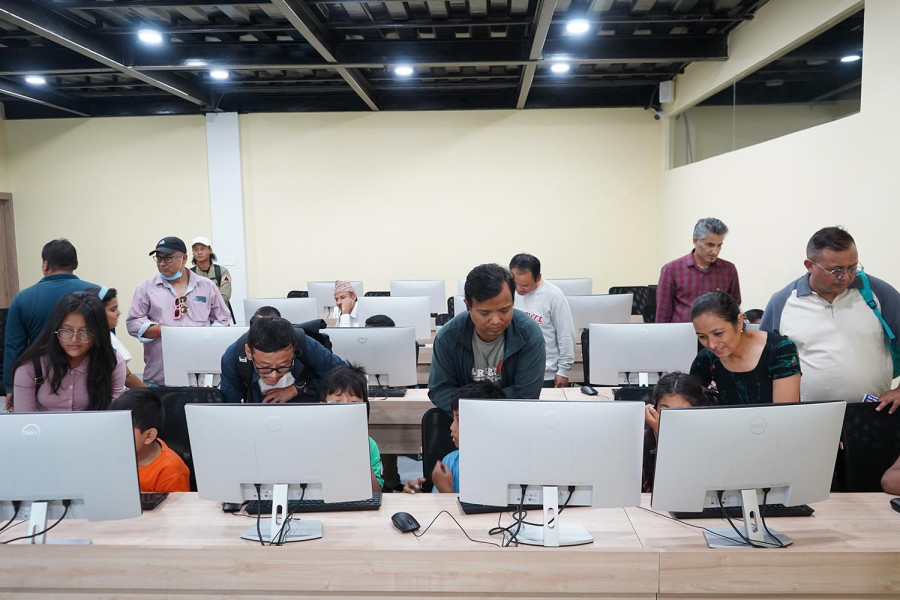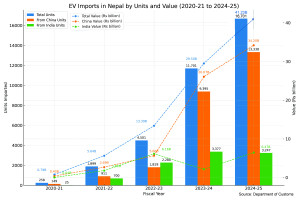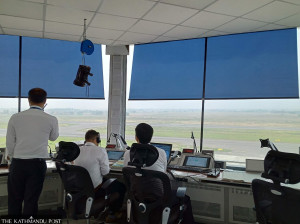Money
Shark Tank Nepal sparks new wave of entrepreneurship
From car care products to coding classes, young Nepali entrepreneurs find investment, visibility, and confidence through the reality TV show.
Krishana Prasain
Bina Bhurtel Bastakoti grew up watching her father run businesses, which sparked her interest in entrepreneurship at a young age. After completing her Master’s in Business Administration (MBA) in Australia, she returned to Nepal in 2018 and began brainstorming business ideas.
Before moving to Australia in 2014 for her MBA, Bina and her husband, Neeraj Bastakoti, were involved in trading, serving as the sole distributor of Lotte Choco Pie in Nepal.
“After returning from Australia, my husband and I continued with the trading business, but deep inside we both wanted to start something of our own,” said Bina, 36, co-founder of Lemon Grass Production.
Her family’s experience in manufacturing soaps and adhesives inspired her to venture into the sector. “We got ideas, knowledge, and motivation from my father to begin producing automobile cleaning products,” she said.
During her MBA studies, Neeraj worked for a car wash company and learned through online courses in his free time. After research and development, the couple launched their first car shampoo under the Clean Bird product in July 2023.
“Through our research, we found a huge scope in automobile care and cleaning products, as the number of two-wheelers and four-wheelers is growing domestically and internationally,” said Bina.
Currently, Lemon Grass Production’s cleaning products are available in Pokhara and also through Daraz. The company plans to soon introduce car perfumes and scratch-proof solutions.
The factory, located in Talchowk, Lekhnath, Pokhara, covers a ropani of land. “We utilised my father’s closed factory, which made setting up slightly easier,” Bina said.
The couple initially invested nearly Rs20 million of their own savings. The company, which started through bootstrapping, was later able to secure an equity investment of Rs10 million for a 20 percent stake. Bootstrapping refers to starting a business with minimal capital, relying on personal finances or revenues rather than outside investment. While this allows entrepreneurs to retain control, it also comes with higher financial risks due to limited resources.
Today, Lemon Grass Production manufactures a range of automobile care products, including car shampoo, wax, tyre polish, glass cleaner, and rat repellent, priced between Rs500 and Rs3,500. About 90 percent of raw materials are sourced locally, with the rest imported from Australia.
Neeraj, 40, said the new investment will be used to expand their product range for both two-wheelers and four-wheelers, and to grow their market nationwide. “Our ultimate aim is to export our products,” he said.
Another enterprise that secured investment through Shark Tank Nepal is Mero Coding Class, which received Rs10 million for a 34 percent stake. The institute offers coding classes for children and anyone interested in learning programming.
Founded in 2021 by friends Sabin Karki and Mukul Bhatta (one co-founder later left), the venture started with Rs3 million raised from family and friends. Their plan is to use the new investment to expand across Nepal by partnering with both government and private schools.
The institute also intends to build infrastructure for expansion and marketing. It recorded a turnover of Rs5 million last year. With the fresh investment, Karki and Bhatta aim to enrol 50 schools and 5,000 students.
Karki, a Chartered Accountant, dreamed of contributing to Nepal’s education sector as a child. Despite securing a well-paying job in India after his CA studies, he chose to pursue his passion. “We had the technical know-how, so we didn’t need to rely on others for small things while planning our business,” he said.
When Karki (then 25) and Bhatta (30) started Mero Coding Class, they were inspired by global tech leaders like Elon Musk and Jeff Bezos, who began coding at a young age. “In Nepal, coding was generally seen as only for IT professionals. That’s where we wanted to make a difference—by teaching coding from school level and to anyone interested,” Karki said.
But convincing parents of its importance was not easy. “Awareness was lacking, but we didn’t give up,” Bhatta said. Their persistence paid off when they secured investment and received office space in Kamalpokhari and Sanobharyang from Shark Tank judge and Agni Group chairman, Cabinet Shrestha.
Before this, the institute operated through bootstrapping, but the founders realised it was not sustainable for their long-term vision of scaling nationally and going international. “That’s when we decided to participate in Shark Tank,” said Karki.
Today, Mero Coding Class employs more than 20 staff and has over 1,000 students learning coding, robotics, and artificial intelligence (AI), both directly and through schools.
Bina and Neeraj Bastakoti, along with Karki and Bhatta, are among the participants of Shark Tank Nepal, the Nepali-language adaptation of the American business reality TV series. The original Shark Tank premiered in 2009 on ABC, where entrepreneurs pitch ideas to a panel of investors, known as “sharks.”
The Nepali version aired its debut season in 2025 on Himalaya Television. Out of 110 enterprises featured, 35 secured investments worth a combined Rs400 million.
The show has quickly gained popularity among Nepali investors, entrepreneurs, and viewers. Experts say it has injected optimism into the country’s struggling entrepreneurial ecosystem. “Entrepreneurship is not easy, especially in Nepal. You need patience, a positive mindset, and problem-solving skills,” one expert noted.
Juna Mathema, chairperson of the Start-Up and Innovation Forum and executive committee member of the Federation of Nepalese Chambers of Commerce and Industry, said the show has encouraged investors and entrepreneurs.
“Even those who couldn’t secure investment still gained a platform to showcase their business, which helps them grow in many ways,” she said.
Mathema added that the programme also educates audiences about business concepts like valuation, bookkeeping, and planning, while helping policymakers understand the real challenges entrepreneurs face.
Entrepreneurs themselves say the show has boosted awareness of their products and services, strengthened brand trust, and generated more inquiries. “After Shark Tank Nepal, we’ve received interest from parents, professionals, and schools about coding, robotics, and AI,” said Karki.
“For us, it has become much easier to explain to parents why learning coding from a young age is important,” he added.




 20.9°C Kathmandu
20.9°C Kathmandu
















